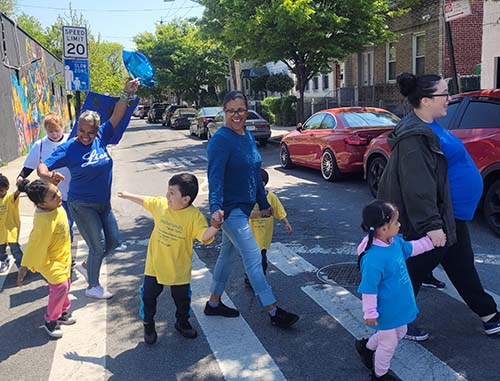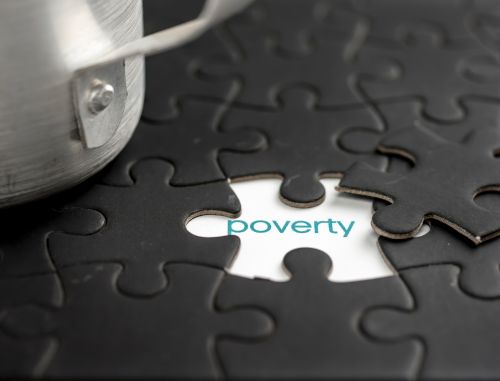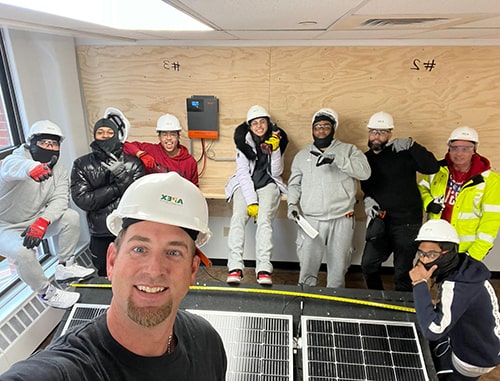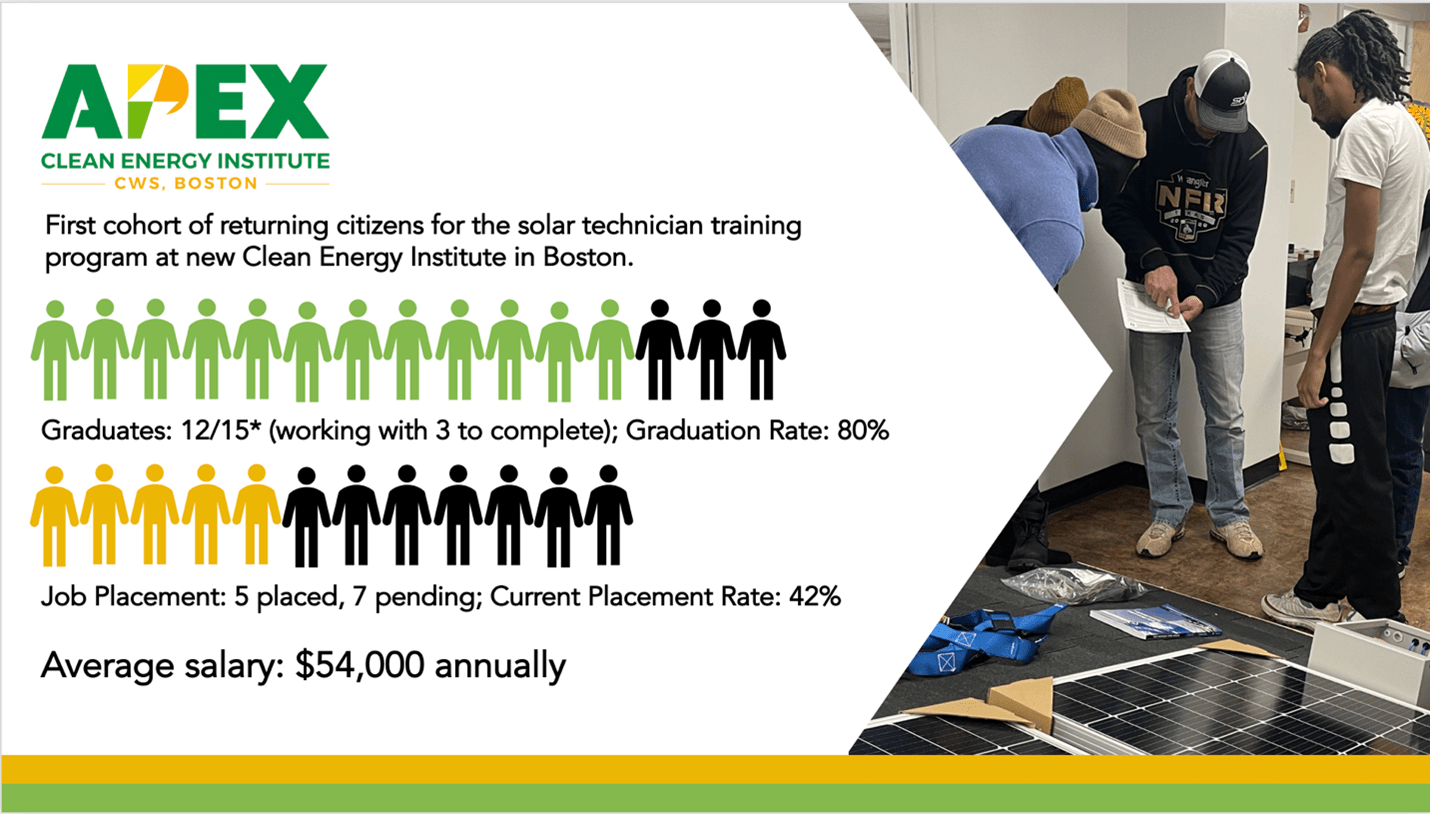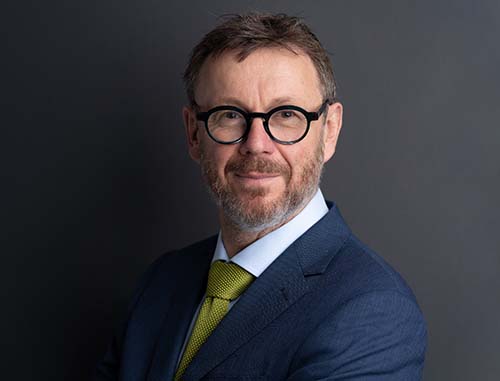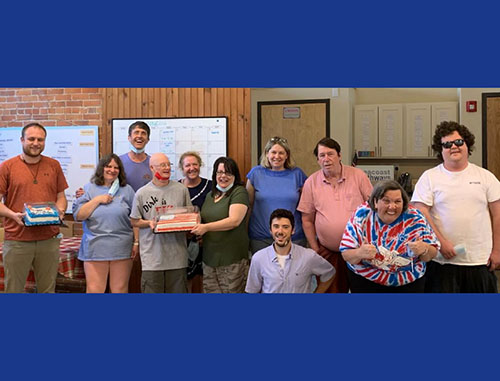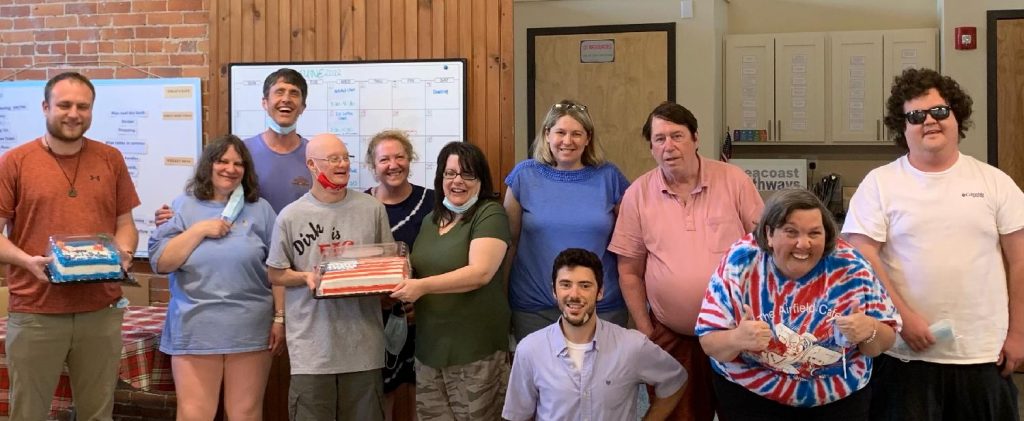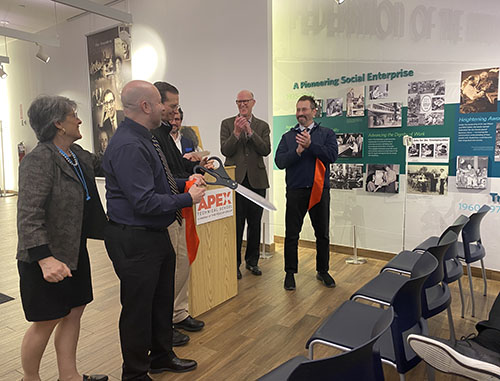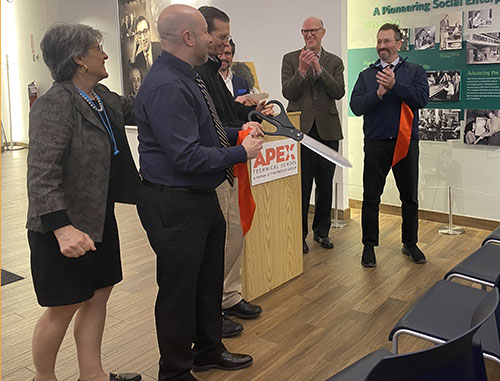New York, March 14—Apex Technical School has launched their highly successful 900-hour electrical training program at The Fedcap Group’s bustling training location at 210 E. 43rd Street in Manhattan. Apex Technical School has provided high-quality training in the trades such as electrical, automotive, plumbing, and HVAC for more than six decades. The Fedcap training center at 210 E. 43rd Street houses the organization’s Food Arts Training Center and is the future home to Paul Smith’s College’s new PSC in NYC culinary program, among other education and workforce training programs.
Apex Technical School’s Electrical and Advanced Electrical Program has enrolled nearly 400 students at the new location. The program introduces students to the National Electric Code and provides electrical classes in electrical safety, blueprints, residential wiring, breakers and fuses, grounding, bonding, conduit bending, motor controls and alarm systems.
“We are thrilled to welcome Apex Technical School to our Manhattan training center,” said Christine McMahon, President and CEO of The Fedcap Group. “As we continue to build educational pathways, Apex plays an essential role in providing individuals with not only training for in-demand jobs, but also a path toward higher education that they can return to at a later time. Apex has been helping individuals break through barriers to reach economic well-being for over 60 years and it’s a privilege to partner with them to help meet the nationwide demand for skilled tradespeople, which is projected to continue through the next decade.”
Mark O’Donoghue, Chair of the Board of The Fedcap Group said, “The Fedcap Group’s combination with Apex fueled our efforts to help people into the workforce to where they can upscale to better jobs and support their families. We couldn’t be prouder to have the legacy of Apex and the Cann family to have joined us.”
“Every time we cut a ribbon, what we’re really doing is cutting a path to a better life for a lot of people who would not have the opportunity,” said Steven Markowitz, President of Apex Technical School. “Three months ago we cut a ribbon in Boston to celebrate the Apex Clean Energy Institute, specifically designed for people getting out of the prison system to train them in solar energy so they can get a well-paying job instead of back in prison due to lack of options, and we’re having enormous success. We look forward to building on these programs to bring more options and opportunities to students seeking a path to a better life.”
Luis Rodriguez, a current student, spoke about his search for a fulfilling and sustainable career. “As the first in my family to pursue education after high school, there was a lot of pressure to live up to family expectations and to be a good role model. After studying at Apex, I know how things work. Apex turned out to be a very good decision. I especially loved the hands-on nature of Apex; I learned how to use tools in the right away. The teachers really motivate us to learn, to be motivated, and to discover ourselves. In the first week of May, I’m going to graduate. My family is very proud of me.”
Juan Tocabens, Vice President with Pavion Firecom, Inc., a New York City-based fire alarm systems company, spoke about the quality of education Apex Technical students receive. “This is the first step; we have a five-year apprenticeship program which leads to becoming a journey person. In the last few years, many of the apprentices have come to our company and we see their drive. In fact, most of the apprentices we hire are from Apex. I look forward to my continued participation and collaboration with this organization that does such a fine job.”
Bill Cann, President Emeritus and an alumnus of Apex Technical School, spoke about furthering the legacy of the school founded by his father. “Around the time they formed Fedcap in 1935 to assist World War I veterans with finding work, a young sailor named John Cann joined the Navy, and remained there till the end of World War II, eventually becoming a chief engineer. Years later at Apex Technical School, he was still fondly known as Chief. I know if the Chief was here with us today, he would be very proud of what we’ve done with his legacy with the combination with Fedcap. I want to thank the leadership of Mark and Christine for what they’ve done the last few years, and the current leadership and staff of Apex. I wish great success to them and to the future students.”
Apex Technical School will also be expanding in other high-demand areas, recently announcing a new Home Automation certificate will be a major component of The Fedcap Group’s new digital learning hub at Civic Hall in New York City. Civic Hall will officially open its doors in the first quarter of 2023.
About The Fedcap Group
For 87 years, The Fedcap Group has developed scalable, innovative, and potentially disruptive solutions to some of society’s most pressing needs. Serving 340,000 people this past fiscal year, The Fedcap Group provides educational services to every age group, vocational training and job attainment in high-growth industries, as well as support services such as behavioral health services—all targeted to helping people achieve long-term self-sufficiency. The Fedcap Group also invests its time and resources in broader system change—working in partnership with federal, state, and local government to improve the way services are designed, funded, and delivered.
About APEX Technical School
Since 1961, Apex Technical School has enjoyed a rich tradition of service to New Yorkers who know us well for our adult vocational technical school which offers training in skilled trades. Our hands-on training courses give individuals the basic trade and labor skills needed to secure an entry-level position in the field.
Headquartered in Long Island City in Queens, Apex offers 900-hour certificate courses in high demand areas such as: refrigeration, automotive service, welding technology, electrical and advanced electrical, plumbing and construction. All of Apex’s trade programs offer hands-on training in as little as 7 months. Apex is licensed by the New York State Education Department and accredited by the Accrediting Commission of Career Schools and Colleges. Apex Technical School is a nonprofit organization and a member of The Fedcap Group.
Contact:
Susan Walsh
swalsh@fedcap.org
212-727-4200
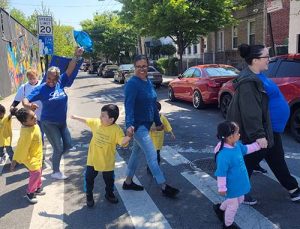 Teachers, clinicians, and family members led students on a short walk along the block of the Easterseals New York Bronx Child Development Center on East Tremont Avenue in The Bronx, on a sunny Friday afternoon to raise awareness and support of autism acceptance.
Teachers, clinicians, and family members led students on a short walk along the block of the Easterseals New York Bronx Child Development Center on East Tremont Avenue in The Bronx, on a sunny Friday afternoon to raise awareness and support of autism acceptance.
